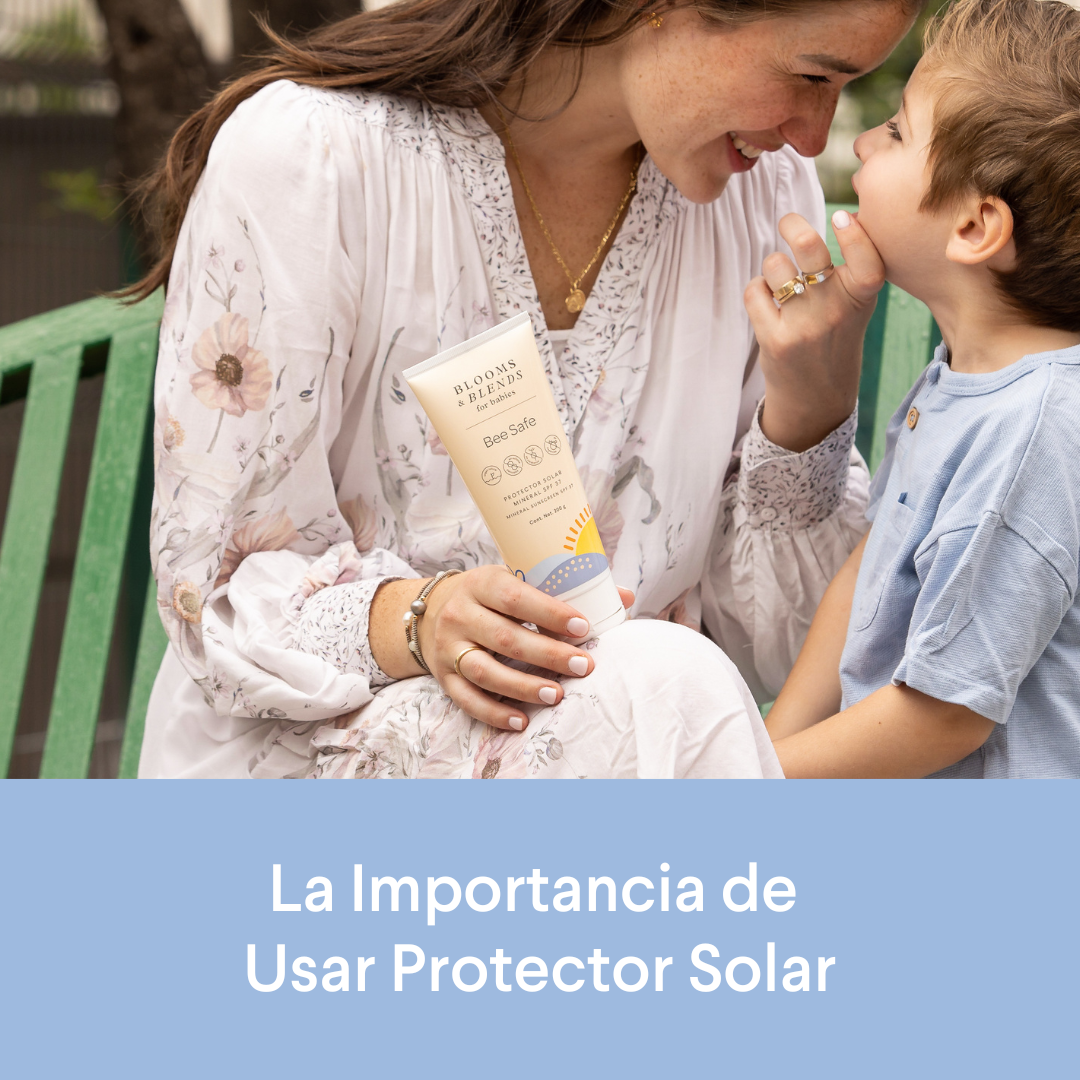The sun, with its warm glow and revitalizing energy, is an essential source of vitamin D and happiness for children and adults alike. While we enjoy the sunlight, it is crucial to remember that excessive exposure to UV rays can have harmful consequences for the health of our skin, especially for the little ones. That is why the use of sunscreen, especially in children and babies, is essential.

Why is it important to use sunscreen for children and babies?
Children's skin is more delicate and susceptible to sun damage than that of adults. Their skin is thinner and has less melanin, which means they have less natural protection against UV rays. Excessive sun exposure during childhood can increase the risk of sunburn, cell damage, and, in the long term, skin cancer.
Chemical protectants vs. Mineral protectors: What's the difference?
Sunscreens are available in two main forms: chemical and mineral. Chemical sunscreens contain ingredients like avobenzone, octisalate, and octinoxate, which absorb UV rays and convert them into heat. On the other hand, mineral sunscreens use ingredients like zinc oxide and titanium dioxide to create a physical barrier that reflects UV rays away from the skin.

Why is the use of mineral sunscreen recommended for children and babies?
The use of mineral sunscreen is recommended for several important reasons:
- Less likely to cause irritation: Mineral sunscreens tend to be gentler and less likely to cause irritation to the sensitive skin of children and babies. They are less likely to cause allergies and adverse skin reactions.
- Immediate protection: Mineral sunscreens offer immediate protection once applied, as they reflect UV rays away from the skin. They do not need time to be absorbed into the skin to be effective.
- Broad Spectrum Protection: Mineral sunscreens offer broad spectrum protection against UVA and UVB rays, helping to prevent sunburn, premature skin aging and skin cancer.
- Health Safety: Mineral sunscreen ingredients, such as zinc oxide and titanium dioxide, are considered safe for health and do not absorb into the skin to the same extent as some chemical ingredients in sunscreens. traditional.
- Environmental friendliness: Mineral sunscreens tend to be more environmentally friendly, as they do not contain certain chemical ingredients that can be harmful to aquatic ecosystems, such as coral reefs.

Protecting the skin of children and babies from the sun is a fundamental responsibility of parents and caregivers. By choosing a mineral sunscreen, you are not only protecting your children's skin from sun damage, but you are also opting for a gentler, safer, and more environmentally friendly option. That's why we created Bee Safe our FDA approved and endorsed mineral sunscreen.
Remember to apply sunscreen generously and reapply it regularly, especially after swimming or sweating, to ensure effective protection against UV rays.

